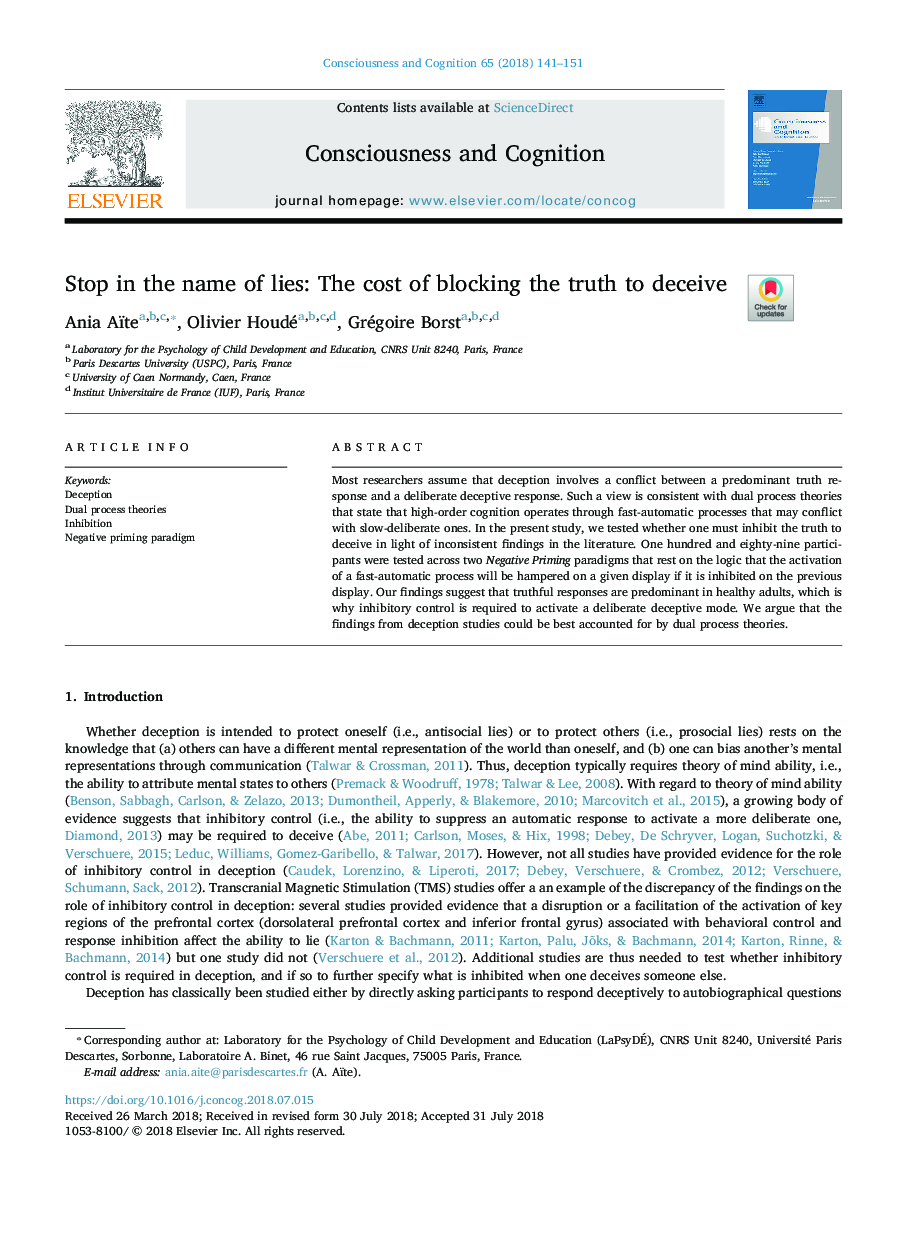| Article ID | Journal | Published Year | Pages | File Type |
|---|---|---|---|---|
| 9952992 | Consciousness and Cognition | 2018 | 11 Pages |
Abstract
Most researchers assume that deception involves a conflict between a predominant truth response and a deliberate deceptive response. Such a view is consistent with dual process theories that state that high-order cognition operates through fast-automatic processes that may conflict with slow-deliberate ones. In the present study, we tested whether one must inhibit the truth to deceive in light of inconsistent findings in the literature. One hundred and eighty-nine participants were tested across two Negative Priming paradigms that rest on the logic that the activation of a fast-automatic process will be hampered on a given display if it is inhibited on the previous display. Our findings suggest that truthful responses are predominant in healthy adults, which is why inhibitory control is required to activate a deliberate deceptive mode. We argue that the findings from deception studies could be best accounted for by dual process theories.
Related Topics
Life Sciences
Neuroscience
Cognitive Neuroscience
Authors
Ania Aïte, Olivier Houdé, Grégoire Borst,
